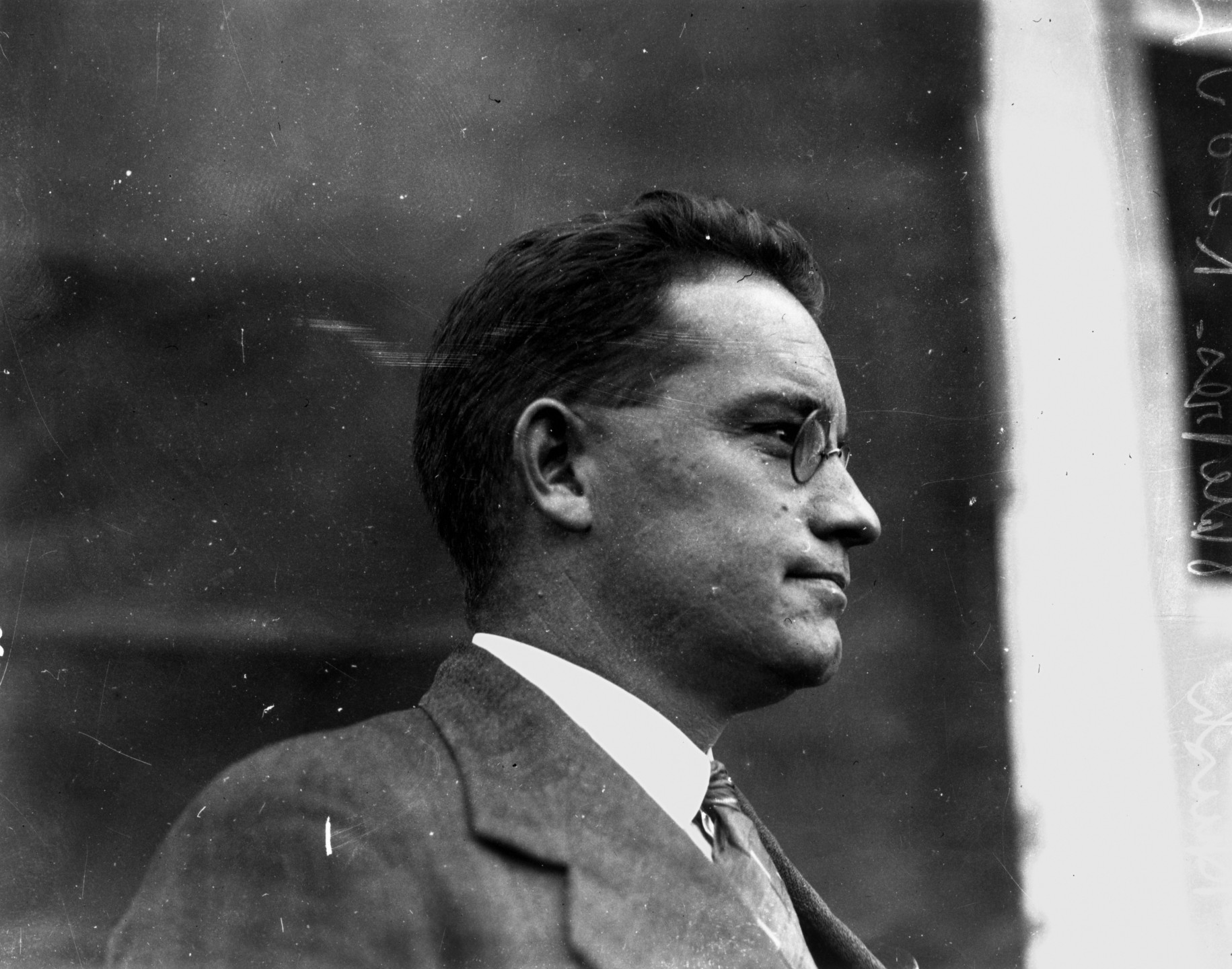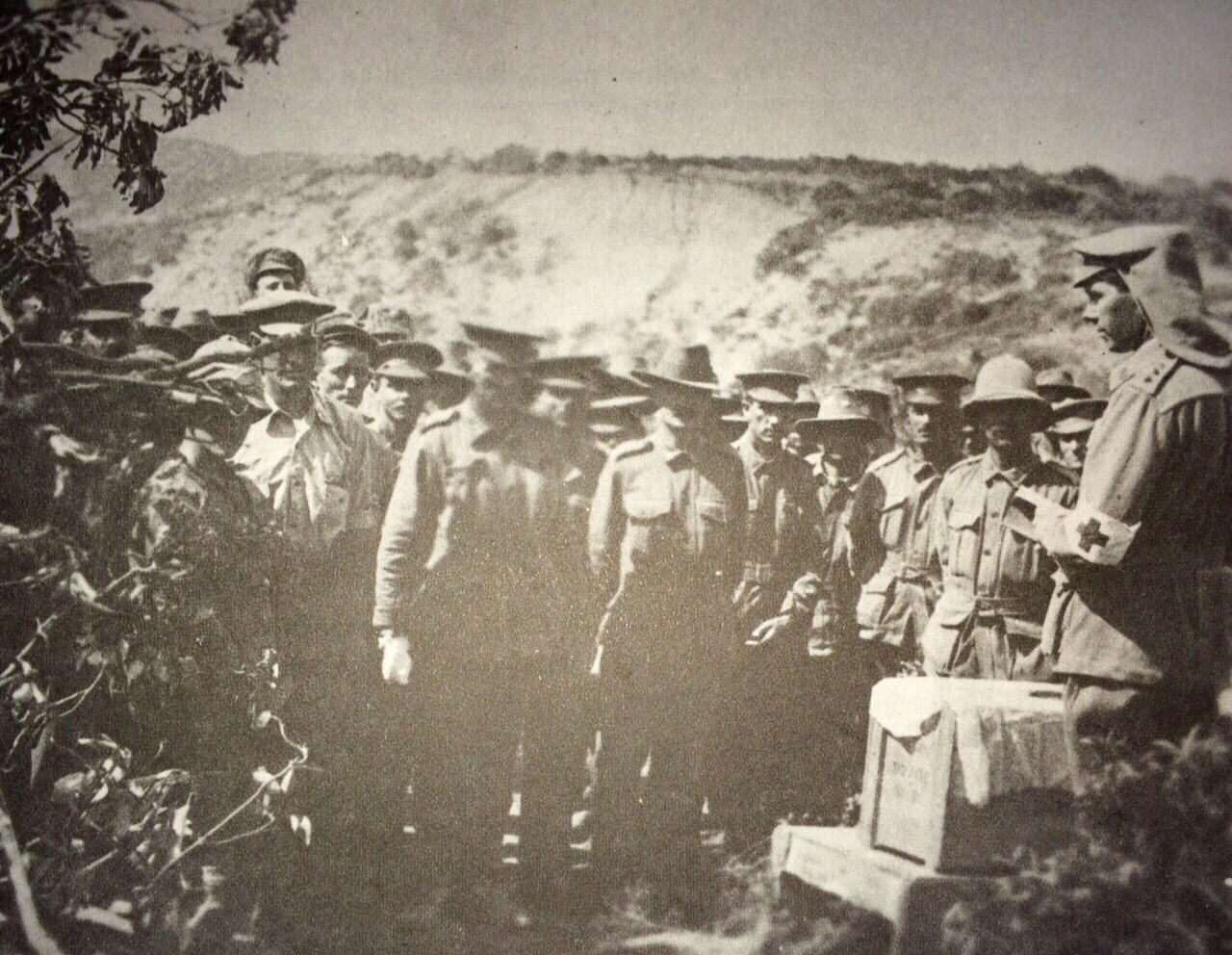On date it falls

ABOVE: State President of The Returned Sailors’ and Soldiers’ Imperial League of Australia, Raymond Douglas Huish (later Sir Raymond Douglas Huish), pictured in the 1930s. This image is from the collection of the State Library of Queensland [ Negative No. 151093 ].
Diggers Emphatically Against
Holding Next ANZAC Day on Monday
Mr. Huish Says: There is No Such Provision in Act
“Thin End of Wedge to Make Day Ordinary Public Holiday.”
ALTHOUGH on many subjects there has been a lack of unanimity of opinion among the various ex-service bodies in Brisbane, on the subject of ANZAC Day all are of one mind – that ANZAC Day must be held each year on April 25 and on no other day.
The leader of a number of returned men’s organisations referred to any attempt to change the observance next year from Sunday, April 25, to Monday, April 26, as the thin edge of the wedge to make ANZAC Day an ordinary long holiday weekend, an attempt which all ex-service bodies would resist with all their power.
The State President of The Returned Sailors’ and Soldiers’ Imperial League of Australia (Mr. R.D. Huish) [ Sir Raymond Douglas Huish ] stated to-day [ 3 June 1936 ] that under the Act there was no provision for ANZAC Day’s being held on any day of the year other than on April 25.
“The comment made by Canon Garland [ David John Garland ] and Mr. E.R.B. Pike [ Eustace Royston Baum Pike ], the joint secretaries of the ANZAC Day Commemoration Committee, is misleading,” said Mr. Huish.
“They say that provision is made in the Act for the observance of ANZAC Day on a Monday when April 25 falls on a Sunday.
“There is no provision in the Act for the observance of ANZAC Day on any other day of the year than that on which it actually falls.
“The original Act, which was passed in 1921, stated that ANZAC Day was to be held on April 25 of each year, and when the Act was amended in October 1930, no alteration was made in this respect.
“When the amendment of the Act was up for consideration to provide for the complete closure of ANZAC Day, the R.S.S.I.L.A. was very definite in its desire that ANZAC Day should be held each year on April 25,” continued Mr. Huish.

ABOVE: Lieutenant Eustace Royston Baum Pike (later Captain Pike). He served in the Machine Gun Section of the 5th Light Horse Regiment. At the age of 30, Pike enlisted at Brisbane on 28 September 1914 and sailed from Sydney aboard Transport A34 Persic on 21 December that year. This image appeared in “The Queenslander” (Brisbane) of 23 January 1915, page 26. Image courtesy of the State Library of Queensland.
“I have no recollection of the point ever being discussed by the ANZAC Day Commemoration Committee since the amendment of the Act was considered in 1930, and consequently, the statements made by Canon Garland and Mr. Pike must be accepted as their own personal opinion and not as the opinion of the ANZAC Day Commemoration Committee.
“Mr. Pike has said that if ANZAC Day were commemorated on a Sunday, the churches could not hold the congregations.
“This is hardly a reason for transferring ANZAC Day to the Monday, for overflow meetings could be arranged as has been done in previous years when the congregations have proved too large to be accommodated in some of the churches.”
INTENTION OF THE ACT.
Mr. Huish contended that any deviation from the Act could only be accepted as the thin end of the wedge to convert ANZAC Day into an ordinary public holiday and a long weekend, and that if this were allowed, the intention of the Act, which was to commemorate the deeds and exploits of Australia’s gallant sons, would be lost.
“All references on ANZAC Day are to what happened at this hour and on this day so many years ago,” continued Mr. Huish.
“What value, for example, would there be in the dawn service if it were held on any other day than April 25?
“To refer to what happened at this hour 22 years ago yesterday would be ridiculous.
“If ANZAC Day were to be observed on a Monday next year, the whole day would lose its significance, particularly as the actual landing at Gallipoli was made on a Sunday.
“If for no other reason than that, Sunday will be the most appropriate day on which to observe it.”
UNANIMOUS OPINION.
The Diggers’ Association (Queensland) has left no doubt as to the view which it holds on the question, for at the annual meeting of the association last night the following resolution was carried unanimously:- “That in the opinion of the members of this Association, ANZAC Day should be commemorated on April, 25, on the day on which it falls.”
Mr. R.H. Coates [ Reginald Harry Coates ], the secretary of the Association, said: “No celebration of ANZAC Day next year could, be held on a Monday with any feeling of contact with the day which we should be commemorating.
“The sentiment would be entirely missing. Moreover, the landing was made on a Sunday, and so no more, fitting day than a Sunday could be found on which to commemorate it, for thus at the dawn service the ceremony would be conducted at the same hour on the same day of the week, and on the same day of the year, as the event which is being remembered.”
WOULD BE JUST ANOTHER PUBLIC HOLIDAY.
“If ANZAC Day is held on a Monday next year, it will be the thin end of the wedge to make ANZAC Day just another public holiday.
“Before we would know where we were there would be a move to have ANZAC Day celebrated each year on the Monday nearest to April 25, and then it would be nothing but an ordinary holiday,” stated Mr. L. Richards [ Llewellyn Richards ], president of The Incapacitated and Wounded Sailors’ and Soldiers’ Association.
“Returned men may not all agree as to the form of solemn observance which ANZAC Day should take, but all are unanimous that it must be celebrated on April 25, the day on which it falls.”
“NO LOOPHOLE SHOULD BE LEFT.”
“The question of the observance of ANZAC Day on any other day than that on which it fell had not been discussed by his association,” said Mr. Stuart James, secretary of The T.B. [ Tubercular ] Sailors’ and Soldiers’ Association [ of Queensland ], who added that informal discussions had shown that the members of his organisation were of opinion that April 25 was the only day on which it should be observed.
“ANZAC Day is not a holiday, but a day to commemorate something that is sacred to every Digger, and no loophole should be left for the conversion of the day into a general holiday which will have no regard to that spirit of which it was desired that the ANZAC Day should be a perpetual reminder.”
His association had always held that ANZAC Day should be commemorated on the day on which it fell, said Mr. W.C. Warne [ Walter Charles Warne ], secretary of The Limbless Soldiers’ Association [ of Queensland ].
“We landed on a Sunday, and therefore, quite apart from any religious sentiment, Sunday is quite the most appropriate day on which to observe the day.
“Regardless, of what day of the week it falls on, however, April 25 is the only day on which properly it can be celebrated.”
– from page 15 of “The Telegraph” (Brisbane) of 3 June 1936.


